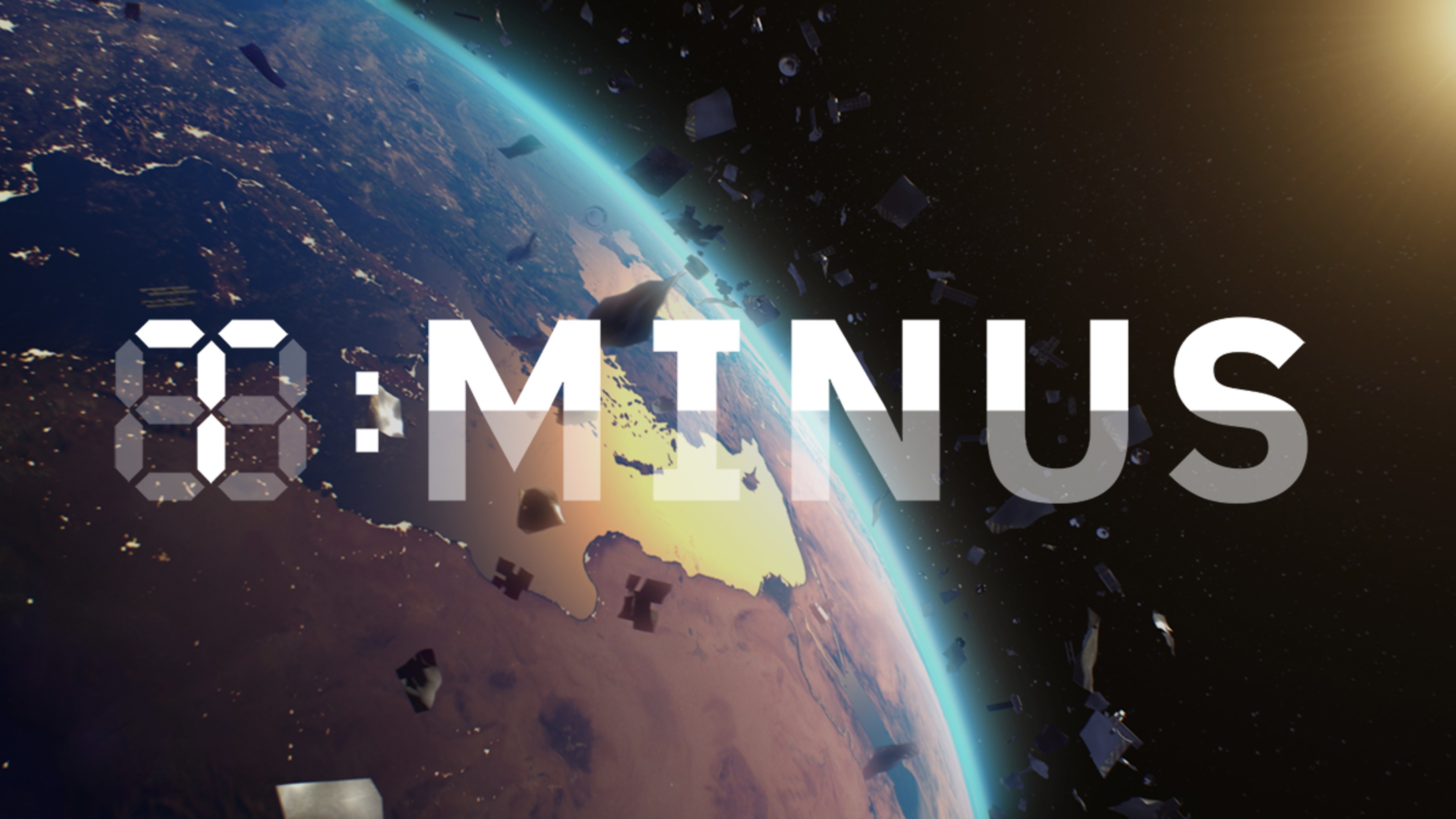Are you optimistic about the future?
About the project
The goal of driving more progress across the world—scientifically, politically, economically, socially, etc—is one shared by many. And yet, debates about the best way to maximize progress continue. After all, how, exactly, does progress happen? What are the best ways to measure progress? What should we prioritize? How do we nurture it and how are we stifling it?
Since Tyler Cowen and Patrick Collison published their essay in The Atlantic a few years ago calling for “a more focused, explicit study of progress”, there has been an increased interest and discussion about how we better understand the drivers of progress and apply those findings to improve our world.
But, of course, there continue to be robust debates on where exactly to focus our efforts and what to prioritize. To better understand those current debates, we spoke with a handful of experts from a variety of disciplines and asked them the same ten questions about the nature of progress and what they see as the priorities that deserve our collective attention.
Click here to browse all the questions »
Rutger Bregman
Historian and New York Times Bestselling Author
I’m neither optimistic or pessimistic about the future. Optimism suggests a kind of complacency to me where you’ll say, “Oh, don’t worry. Things will turn out fine. Just relax, sit back, enjoy the ride.” That’s certainly not how I look at history. The word I prefer to use here is hope, because hope is about the possibility of change. Not the inevitability, but the possibility.
We can do things to make this world a radically valid place and hope impels you to act. I think that’s what it’s all about. In that way, it’s connected to my discipline, history. I think the main lesson of history is that things can be different. There’s nothing inevitable about the way we structured our society and economy right now. It can all radically change for the better or for the worse. If you would’ve talked to Germans in the 1920s and you would’ve predicted their future, they couldn’t have imagined that in just 20 years, they would live in this horrific dictatorship that was murdering millions of people on an industrial scale.
If you would’ve thought people, say, Bangladesh in the 1970s and the 1980s that child mortality would plummet, absolutely plummet and many other places around the globe that actually we would see so much progress. So many people wouldn’t have believed it. We remember from the 70s the predictions like, people like Paul Ehrlich, who said that a billion people would die from hunger. Well, luckily, we prevented that. Things can change. Obviously, every new solution creates new problems, but this is the trajectory we’re on as humanity. We can turn back. The philosopher, William MacAskill, has given us this metaphor of a mountain climber. We’re climbing, and we need to go on. We still haven’t reached the top. If we stop now, we have the risk of falling down. We got to go on and do our best and hope that we will reach the top in time.
“There’s nothing inevitable about the way we structured our society and economy right now. It can all radically change for the better or for the worse.”
Dr. Hannah Ritchie
Head of Research, Our World in Data
I would now associate as been an optimist. In the past, I definitely wouldn’t have, because I think I was also of the mindset of cynicism is smart, optimism is dumb. And I think the mistake I made, and I think a lot of people make now, is they mistake optimism for this blind optimism where we just assume, “Okay, if we just carry on, things will just get better and it will all work out in the end.” I mean that’s definitely not my position. I kind of now frame it as this kind of impatient optimism where it’s not going to happen on our own, we need to drive it. If we sit back and do nothing, nothing will happen or bad stuff will happen. So it’s this, I now see optimism as we have this opportunity that we have the choice to take, we don’t have to take it, we can take it. And it’s on us to drive the action to actually get there. And that’s where I see our opportunity as optimists.
I think if we look at the world as a whole, I think there’s been no point in human history where we have the amount of resources, talent, drive to actually solve these problems and I think that’s why I’m so optimistic. I don’t think it’s inevitable, but I think it’s possible. And the reason I think it’s so fundamental to driving change is that I think I used to be very cynical and I think I was actually much, much less effective than I am now in terms of driving change. I think every idea I shot down. I think basically it made me not open to any ideas for progress whatsoever.
Charles Kenny
Senior Fellow, Center for Global Development
Yes. And the simple reason is I’ve spent a fair amount of time with kids, and we are raising the most healthy, the most educated, the most liberally minded, if you will, generation in history. And if that doesn’t give you optimism, I don’t know what would.
Alec Stapp
Co-founder and co-CEO of the Institute for Progress
Yeah, I’m definitely an optimist. And I would say it’s both for a rational and adaptively irrational reasons. So I would say that the rational part of that is that I look over the course of history, especially since the Industrial Revolution. And we’ve seen massive progress both in the United States and globally in terms of poverty measures, literacy, basic measures around public health, that we were just massively better off. There’ve been obviously bumps along the road, but the general direction is towards progress. But lots of problems remain and there’s lots of work to be done. We can be confident that if we take action, we have a good chance of continuing that progress over time. And then I would say irrationally adaptive sense of optimism is that when I do my day-to-day policy work in D.C., most of the time you’re going to fail. And so that’s easy to think about it in a pessimistic environment of there’s lots of gridlock, influencing policy is a very difficult thing to do, but I think it’s adaptive to be irrational because it allows you to keep going and to stay motivated. And so if you just keep hitting your head against a brick wall over and over and over, weirdly sometimes you break through and being optimistic lets that happen more often.
Anne-Marie Slaughter
CEO, New America
Well, I am definitely an optimist. And I have always said I started my career as an international lawyer. And if you’re not optimistic as an international lawyer, you cannot be in the field. Whatever progress we’ve made in international law has taken decades and centuries. And so you have to believe that as many times as an international legal norm is broken, Russia just invaded Ukraine. If you look over the sweep of history, you can absolutely see the progress from an era in which that was a state’s right to do, to an era in which we now recognize that Russia’s violated a fundamental norm. And many nations, not all, are willing to push back.
I am also an optimist because I read long ago that pessimists see the world more realistically, but optimists are more effective. And that’s, again, avoiding the counsel of despair. So my husband’s a pessimist. He often does see things more realistically, but I have enough of that optimistic gloss to convince me to try to do something. And I may fail nine times out of 10, but the 10th time, I’m going to succeed. So this is again, for me, optimism is a philosophy. It is an outlook. It’s the way I’m wired, or maybe a commitment, because it is how I avoid curling up into fetal position and doing nothing.
That said, I am as worried about the fate of the country and the world right now as I’ve ever been. I am acutely aware of those periods in history in which catastrophe has happened, whether it’s a mass extinction starting over with a completely different set of beings, or the possibility of civil war. And I think the difference between an optimist and a kind of person who is not connected to reality is somebody who can be very realistic about the threats that they see, and still believe it is possible to meet them, and make some kind of progress.
Parag Khanna
Founder & Managing Partner of FutureMap
I’m optimistic about our potential to achieve progress, now and in the future. I’m not necessarily optimistic about our ability to do it in the kind of comprehensive, coordinated fashion that I think is necessary to genuinely declare that we have unlocked, if you will, the secret to progress.
Eli Dourado
Senior Research Fellow, Center for Growth and Opportunity at Utah State University
I’m conditionally optimistic. If we keep going down the path that we’ve been going down, I think it will end in calamity. I think we’ll have more shortages. We will have probably more pandemics, probably other disasters will follow us if we continue to be as complacent as we have been. But also, I’m hopeful that there does seem to be a growing realization that our current approach is not sustainable and therefore we must prioritize material progress. And I think this is happening across the political spectrum. And then I’m very optimistic that if we did the right things, if we took a more pro progress approach, I think that the technological possibilities of the future are really staggering. We could all have a much higher standard of living than we currently have if we adopt these technologies or create the environment in which these technologies can really come to fruition.
Saloni Dattani
Founding Editor, Works in Progress
Yes, I think that depends on how you define optimism. In terms of how I think the next few years will be if optimism is about prediction and probably not optimistic for the coming years because of the recent shifts in democracy, in big countries and the economic effects of COVID and the growing risks of further pandemics. I think it’s important to not take things for granted or see progress as inevitable or irreversible, but I think it’s possible to make progress. And so I’m optimistic in that way. And I think it’s important to try to improve things regardless because many aspects of the future are up to us and the decisions we make.
Jim Pethokoukis
Senior Fellow, American Enterprise Institute
I think I’m optimistic. I have to be in a way, I have a lot of kids. It’d be very difficult to go through the whole process of raising them and sending them out in the world if I thought I was sending them out to a place that was only going to get progressively worse over the decades. And if you look at two of the big events the past few years, we have a pandemic and the war, the Russian’s invasion of Ukraine. The silver lining in all of this is that I think it has produced greater awareness of the benefits of progress, the benefits of technology in the mRNA vaccines, being able to have them ready, being able to develop them, being able to distribute them. And we’ve seen what happens when we suddenly are plunged into a world of scarcity, whether that’s because of supply chain problems or energy shortages. That’s not a world people want.
So hopefully, I think, and this does make me optimistic, that those lessons I think are being internalized broadly, and it will be easier to make these pro-progress arguments in the future building on those foundations.
Joan Blades
Co-founder, Living Room Conversations
I choose to be an optimist about the future. There’s all sorts of reasons for pessimism, but pessimism isn’t any fun and it doesn’t take us where I hope we can go. There is this dream of a really wonderful future and that’s not going to happen. I can’t say it’s not going to, but it’s way less likely to happen with a lot of pessimism. So choose optimism.





